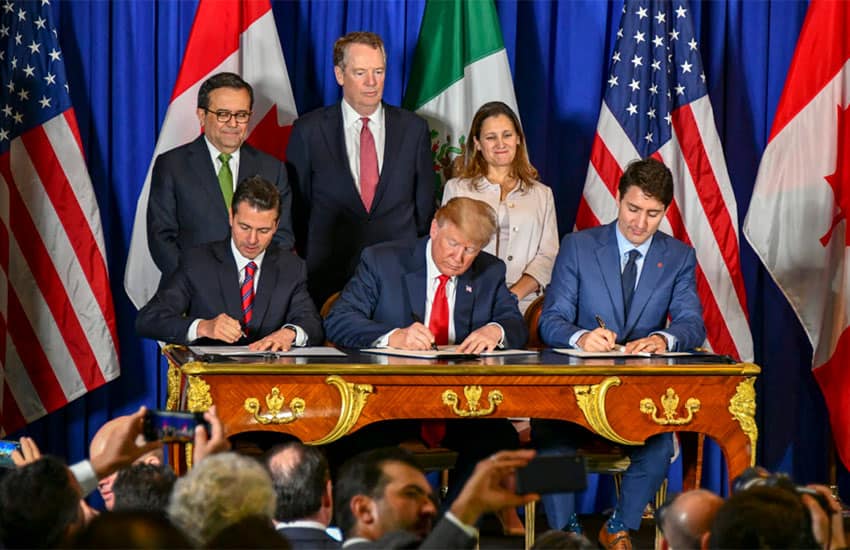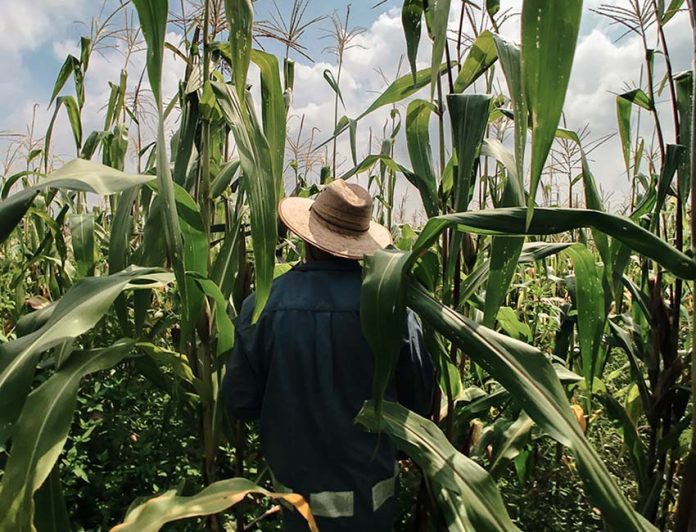The government of Canada said Friday that it would participate as a third party in the dispute settlement consultations initiated by the United States over Mexico’s plan to phase out imports of genetically modified (GM) corn by 2024.
United States Trade Representative Katherine Tai announced last Friday that the U.S. had requested talks under the North American free trade pact known as the US-Mexico-Canada Agreement (USMCA).

“These consultations regard measures set out in Mexico’s February 13, 2023 decree, specifically the ban on use of biotechnology corn in tortillas or dough, and the instruction to Mexican government agencies to gradually substitute — i.e., ban — the use of biotechnology corn in all products for human consumption and for animal feed,” Tai’s office said in a statement.
Canada’s Minister of Agriculture and Agri-Food Marie-Claude Bibeau and Minister of International Trade Mary Ng confirmed in a statement that Canada “has decided to participate as a third party in the dispute settlement consultations initiated by the U.S.”
The statement said that Canada “shares the concerns of the U.S. that Mexico’s measures are not scientifically supported and have the potential to unnecessarily disrupt trade in the North American market.”
It also said that Canada expects its North American trade partners to “uphold their commitments” under USMCA and that the Canadian government is “committed to science-based decision-making and keeping food, feed and the environment safe, while supporting the ability of our farmers, workers and exporters to succeed in an innovative and sustainable agricultural sector.”

Canada’s role as a third party under USMCA rules does not mean that Canada has become a disputing party in the settlement consultation talks but rather that it has been granted permission to be a participating observer in the proceedings.
“… Canada will continue to work with Mexico and the U.S. towards an outcome that preserves trade predictability and market access for our farmers and exporters,” Bibeau and NG said.
While the nation is not a major exporter of corn, it sends large quantities of canola to Mexico, much of which is GM.
Mexico is not currently planning to ban GM canola imports.
If the dispute settlement consultations requested by the United States don’t result in agreement within 75 days, the U.S. government could ask for a dispute settlement panel to rule on the case.

Mexico’s Agriculture Minister Víctor Manuel Villalobos Arámbula said last week that he didn’t expect the conflict to reach a dispute settlement panel.
The U.S. National Corn Growers Association said in February that the proposed ban on GM corn exports to Mexico “would be catastrophic for American corn growers as well as the Mexican people, who depend on corn as a major staple of their food supply.”
President López Obrador asserts that GM corn seeds pose a contamination threat to native varieties of maize that have been grown in Mexico for thousands of years. He also believes GM corn is harmful to human health.
López Obrador asserted in March that Mexico’s decision to phase out imports of GM corn for human consumption doesn’t violate its commitments under the USMCA.
“No agreement in the world allows goods that are harmful to health to be bought or sold,” he said. “In the … [USMCA] there are clauses that protect consumers, just as the environment and workers are protected.”
With reports from Reuters
